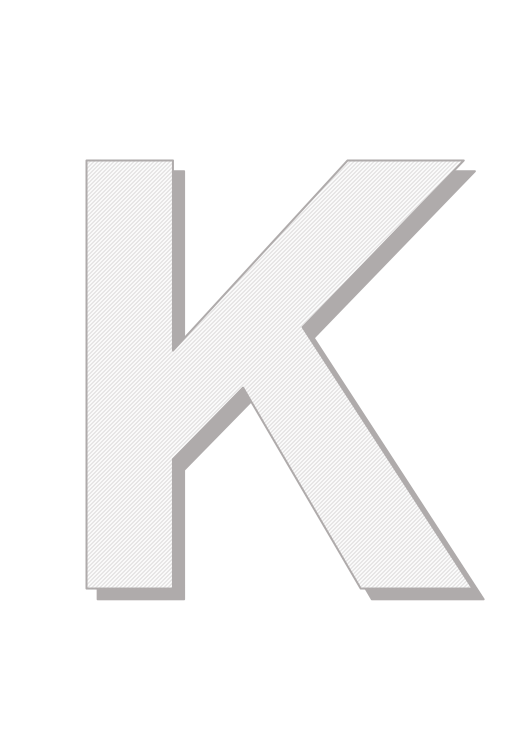Accepted Papers
Long Papers
- Anni Coden, Anna Lisa Gentile, Daniel Gruhl and Steve Welch. Identifying Ambiguity in Semantic Resources
- Francois Luus, Naweed Khan and Ismail Akhalwaya. Interactive Supervision with t-SNE
- Enrico Daga and Enrico Motta. Capturing themed evidence, a hybrid approach
- Mauro Vallati and Lukas Chrpa. On the Robustness of Domain-Independent Planning Engines: The Impact of Poorly-Engineered Knowledge
- Nicole Merkle and Patrick Philipp. Cooperative Web Agents by Combining Semantic Technologies with Reinforcement Learning
- Agustin Borrego, Daniel Ayala, Inma Hernandez, Carlos R. Rivero and David Ruiz. Generating rules to filter candidate triples for their correctness checking by Knowledge Graph completion techniques
- Jose Manuel Gomez-Perez and Raul Ortega. Look, Read and Enrich - Learning from Scientific Figures and their Captions
- Michel Chein, Alain Gutierrez and Michel Leclère. A General Framework to Build and Assess the Quality of Authority Links
- Diego Moussallem, Axel-Cyrille Ngonga Ngomo, Paul Buitelaar and Mihael Arcan. Utilizing Knowledge Graphs for Neural Machine Translation Augmentation
- Jieying Chen, Ghadah Abdulrahman S Alghamdi, Renate A. Schmidt, Dirk Walther and Yongsheng Gao. Ontology Extraction on Large Ontologies via Modularity and Forgetting
- Avicenna Wisesa, Fariz Darari, Adila Krisnadhi, Werner Nutt and Simon Razniewski. Wikidata Completeness Profiling Using ProWD
- Abdullah Fathi Ahmed Ahmed, Mohamed Sherif and Axel-Cyrille Ngonga. Do your Resources Sound Similar? On the Impact of using Phonetic Similarity in Link Discovery
- Manuel Atencia, Jérôme David and Jérôme Euzenat. Several link keys are better than one, or Extracting disjunctions of link key candidates
- Axel-Cyrille Ngonga Ngomo, Felix Conrads, Maximilian Pensel and Anni-Yasmin Turhan. Congenial Benchmarking of RDF Storage Solutions
- Luis Palacios, Yue Ma, Chantal Reynaud and Gaëlle Lortal. Knowledge Based Situation Discovery for Avionics Maintenance
- Vitalis Wiens, Steffen Lohmann and Sören Auer. GizMO -- A Customizable Representation Model for Graph-Based Visualizations of Ontologies
- Gengchen Mai, Krzysztof Janowicz, Bo Yan, Rui Zhu, Ling Cai and Ni Lao. Contextual Graph Attention for Answering Logical Queries over Incomplete Knowledge Graphs
- Sven Lieber, Ben De Meester, Anastasia Dimou and Ruben Verborgh. MontoloStats – Ontology Modeling Statistics
- Cristina-Iulia Bucur, Tobias Kuhn and Davide Ceolin. Peer Reviewing Revisited: Assessing Research with Interlinked Semantic Comments
- Andre Valdestilhas, Tommaso Soru and Muhammad Saleem. Towards More Complete Resultset Retrieval from Large Heterogeneous RDF Data Sources
- Ling Cai, Krzysztof Janowicz, Bo Yan, Gengchen Mai and Rui Zhu. TransGCN:Coupling Transformation Assumptions with Graph Convolutional Networks for Link Prediction
- Joe Raad, Erman Acar and Stefan Schlobach. On the Impact of sameAs on Schema Matching
- Lucie-Aimée Kaffee, Kemele M. Endris, Elena Simperl and Maria-Esther Vidal. Ranking Knowledge Graphs By Capturing Knowledge about Languages and Labels
- Carlos Badenes-Olmedo, José Luis Redondo García and Oscar Corcho. Scalable Cross-lingual Document Similarity through Language-specific Concept Hierarchies
- Ronald Denaux and Jose Manuel Gomez-Perez. Assessing the Lexico-Semantic Relational Knowledge Captured by Word and Concept Embeddings
- Krutarth Patel and Cornelia Caragea. Exploring Word Embeddings in CRF-based Keyphrase Extraction from Research Papers
- Binh Vu, Jay Pujara and Craig Knoblock. D-REPR: A Language for Describing and Mapping Diversely-Structured Data Sources to RDF
- Antonio Lieto, Gian Luca Pozzato, Federico Perrone and Eleonora Chiodino. Knowledge Capturing via Conceptual Reframing: A Goal-oriented Framework for Knowledge Invention
Short Papers
- Mohamad Yaser Jaradeh, Allard Oelen, Kheir Eddine Farfar, Manuel Prinz, Jennifer D'Souza, Gábor Kismihók, Markus Stocker and Sören Auer. Open Research Knowledge Graph: Next Generation Infrastructure for Semantic Scholarly Knowledge
- Mickael Wajnberg, Petko Valtchev, Mario Lezoche, Hervé Panetto and Alexandre Blondin-Massé. Hunting for process factor causality links with multi-relational associations
- Hamada Zahera, Mohamed Sherif and Axel-Cyrille Ngonga Ngomo. Jointly Learning from Social Media and Environmental Data for Typhoon Intensity Prediction
- Alan Lindsay. Towards Exploiting Generic Problem Structures in Explanations for Automated Planning
- Md Reshad Ul Hoque, Jian Wu, Jiang Li, Chiman Kwan, Agnese Chiatti and Dash Bradley. Searching for Evidence of Scientific News in Scholarly Big Data
- Thamer Mecharnia, Nathalie Pernelle, Lydia Chibout and Fayçal Hamdi. An Approach Toward a Prediction of the Presence of Asbestos in Buildings Based on Incomplete Temporal Descriptions of Marketed Products
- Prateek Jain, Kunal Verma, Aniket Gaikwad and Pramod Gadde. Understanding financial transaction documents using Natural Language Processing
- Leah Chrestien and Lukáš Chrpa. Appropriate Expressiveness of Planning Domain Models: An Urban Traffic Control Case Study
- Al Koudous Idrissou, Veruska Zamborlini, Frank Van Harmelen and Chiara Latronico. Contextual Entity Disambiguation in Domains with Weak Identity Criteria: Disambiguating Golden Age Amsterdamers
- Pedro Szekely, Daniel Garijo, Divij Bhatia, Jiasheng Wu, Yixiang Yao and Jay Pujara. T2WML: Table To Wikidata Mapping Language
